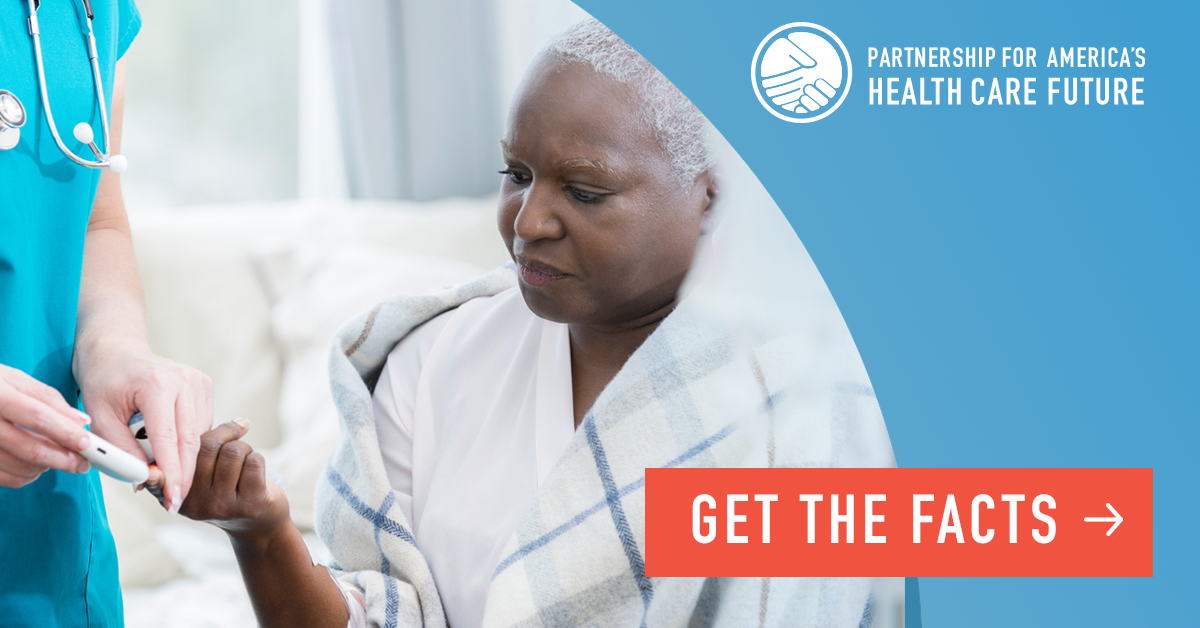Kaiser Poll: Most ‘Unaware Of Dramatic Changes’ To Health Care Under Medicare For All

WASHINGTON – As Democratic presidential hopefuls prepare to take the debate stage next week, new national polling data released this morning by the Kaiser Family Foundation reveals that “majorities of Americans are unaware of the kind of dramatic changes that [Medicare for all] would bring to the nation’s health care system.”
As POLITICO reports, “[m]any Americans have fundamental misconceptions about ‘Medicare for All,’ such as believing it would be optional or they could keep their private insurance, new polls find … One big mistake: 55 percent of respondents mistakenly believe that people with private insurance would be able to keep their current arrangement under Medicare for All … The poll also found that just 1 in 5 Americans were very confident they know what ‘Medicare for All’ would mean for our health care system or their personal health care.”
However, “[t]here’s one thing Americans understand about Medicare-for-all: It would mean higher taxes … Americans seem most familiar with the fact that Medicare-for-all would require massively higher taxes,” The Washington Post reports this morning. As Kaiser notes, “[t]he survey finds eight in 10 Americans (78%) are aware that taxes would increase for most people under such a plan.”
As Jonathan Cohn writes at HuffPost today, “[t]he lack of understanding about Medicare for All is consistent with some other recent polls, including a new online survey from Navigator Research in which a majority of respondents and a large majority of Democrats failed to realize that Medicare for All would effectively wipe out existing private coverage. The confusion also showed up in a series of six focus groups that the Kaiser Foundation conducted in Florida, Texas and Pennsylvania, according to Liz Hamel, the foundation’s director of public opinion and survey research. ‘I don’t think people are familiar even with the basic details,’ she told HuffPost.”
“Such a sweeping overhaul of the country’s patchwork health insurance system hasn’t been attempted before,” The Washington Post reports, “and even though the 2020 contenders frequently mention it, they tend to shy away from details on exactly how the whole thing would work.”
This is no surprise, as polling has shown that most Americans oppose Medicare for all once they know what it is, and most Democratic voters favor strengthening the Affordable Care Act over pursuing Medicare for all. A national poll conducted earlier this year by the Kaiser Family Foundation revealed that support for Medicare for all “drops as low as -44 percentage points” when people find out it would “lead to delays in some people getting some medical tests and treatments,” and “is also negative if people hear it would threaten the current Medicare program (-28 percentage points), require most Americans to pay more in taxes (-23 percentage points), or eliminate private health insurance companies (-21 percentage points).”
Meanwhile, as CNN notes, today’s Kaiser poll finds that Medicare for all doesn’t rank among Democratic and Democratic-leaning independent voters’ top health care priorities:
Medicare for All is one of the health care proposals being championed by progressive Democrats, including Sanders and others running for the nomination, though it has caused fissures within the party. Top congressional Democrats have committed to defending the Affordable Care Act, which is under assault in the courts from an alliance of Republican-led states, as well as the Trump administration. Democratic politicians have made health care a major part of their campaigns, and that’s in line with the priorities of Democrats and Democratic-leaning independents. Some 87% say it’s “very important” for candidates in the upcoming debates to discuss the topic, topping a list that includes women’s issues, climate change, gun policy and income inequality. Implementing a Medicare for All-type system, however, doesn’t rank as high when looking at health care topics. Some 28% of respondents want to hear how the candidates would lower the amount people pay for health care and another 18% want them to discuss increasing access to care. Medicare for All comes in at 15%, just below protecting the ACA and protections for those with pre-existing conditions.
A previous national survey by Kaiser found that most Democrats and Democratic-leaning independents “say they want Democrats in Congress to focus their efforts on improving and protecting the ACA,” not pursuing Medicare for all.
And, as Medicare for all “falters,” some elected officials and 2020 presidential hopefuls are turning to so-called “moderate” fallback proposals – often branded “public option” or “Medicare buy-in.” In reality, these proposed government insurance schemes would lead to the same result Americans reject: a one-size-fits-all health care system run by Washington.
The Wall Street Journal reports that these government insurance systems represent “stepping stones to single payer,” a fact acknowledged by supporters of such proposals, including one U.S. Senator who recently admitted it would bring about the “slow death” of employer-provided and other private coverage and serve as an “on ramp to a single-payer system.”
Meanwhile, recent studies provide dire warnings about the ways a new government insurance system would harm providers and patients. A study found that “[f]or hospitals, the introduction of a public plan that reimburses providers using Medicare rates would compound financial stresses they are already facing, potentially impacting access to care and provider quality.” Another study found that government insurance systems such as “buy-in” or “public option” could force hospitals to limit the care they provide, produce significant “layoffs” and “potentially force the closure of essential hospitals.”
###